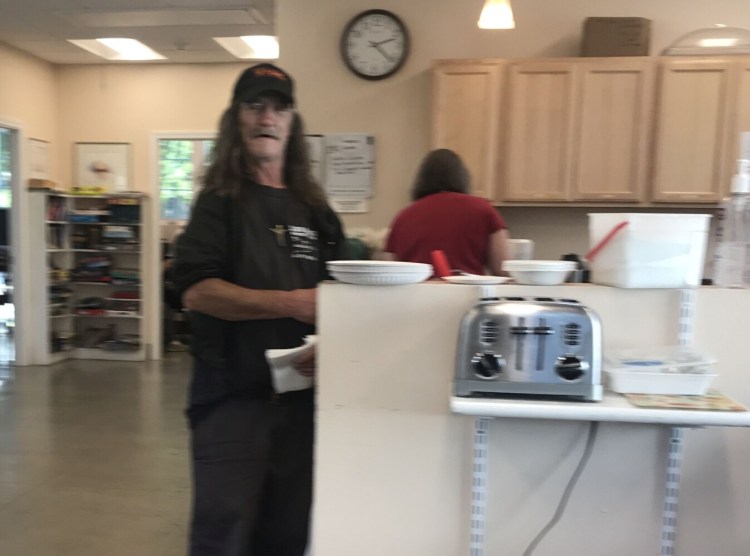President Donald Trump’s pick to lead the federal response to homelessness thinks the problem is that being homeless is too easy. He should hear about Russell Williams.
Williams was born and raised in Brunswick, and lived nearly all his life there. The 64-year-old’s body was found late last month in his sleeping bag by the railroad tracks. Police say he was likely a victim of the elements and his own medical issues.
In other words, Williams died because he was homeless.
Which is not to say he was alone, or unloved. Williams was a regular at The Gathering Place, Brunswick’s day shelter, where he was known to be gregarious, helpful and generous, according to reporting by Hannah LaClaire at the Brunswick Times Record. Issues with alcohol and mental health meant he could be belligerent, but he wasn’t seen as a threat, and police after his death waved away their many contacts with him as “mostly just nuisance stuff.”
Williams was a veteran, having served in the Navy in the 1970s, his sister told the Times Record. For a time, he worked at Eastland Shoe in Freeport.
But he struggled with mental illness, too, and he wound up homeless.
And like so many others, as Williams tried to get help, he had trouble navigating an underfunded system. His food assistance had just been cut and he couldn’t figure out why. He had received a federal housing voucher but couldn’t find a place that would take it within the 60 days allotted.
Williams didn’t use the town’s adult or family shelters, but if he did he would have found them turning away people for lack of space.
Not long after the housing voucher ran out, Williams was dead.
If Williams had found a place to live, perhaps he’d be alive today. Perhaps provided with the warmth and stability of housing, with a little help, he could have worked through the challenges that had left him homeless in the first place.
We’ll never know if it would have worked out for Russell Williams. But the “housing first” philosophy has worked so well for others that it is becoming the widely accepted best practice — particularly now, as so many Americans are homeless solely because they can’t find an affordable place to live.
Unfortunately, Robert Marbut, Trump’s choice for head of the U.S. Interagency Council on Homelessness, sees it differently. Marbut says that communities are largely “enabling” the homeless, who are in that position because of poor decisions, not rising housing costs and a shrinking safety net. He wants homelessness criminalized and police given the power to make arrests on minor offenses. He has criticized public power outlets and food handouts.
The key to solving homelessness, Marbut says, is to get the homeless off the streets and into shelters. Then, officials can decide who is worthy of permanent, affordable housing.
But permanent, affordable housing is the whole point. In its limited experience, Maine has found that housing gives people an anchor of stability as they get their lives on track.
And Russell Williams’ story shows just how hard it can be to get anywhere without it.
Send questions/comments to the editors.



Success. Please wait for the page to reload. If the page does not reload within 5 seconds, please refresh the page.
Enter your email and password to access comments.
Hi, to comment on stories you must . This profile is in addition to your subscription and website login.
Already have a commenting profile? .
Invalid username/password.
Please check your email to confirm and complete your registration.
Only subscribers are eligible to post comments. Please subscribe or login first for digital access. Here’s why.
Use the form below to reset your password. When you've submitted your account email, we will send an email with a reset code.